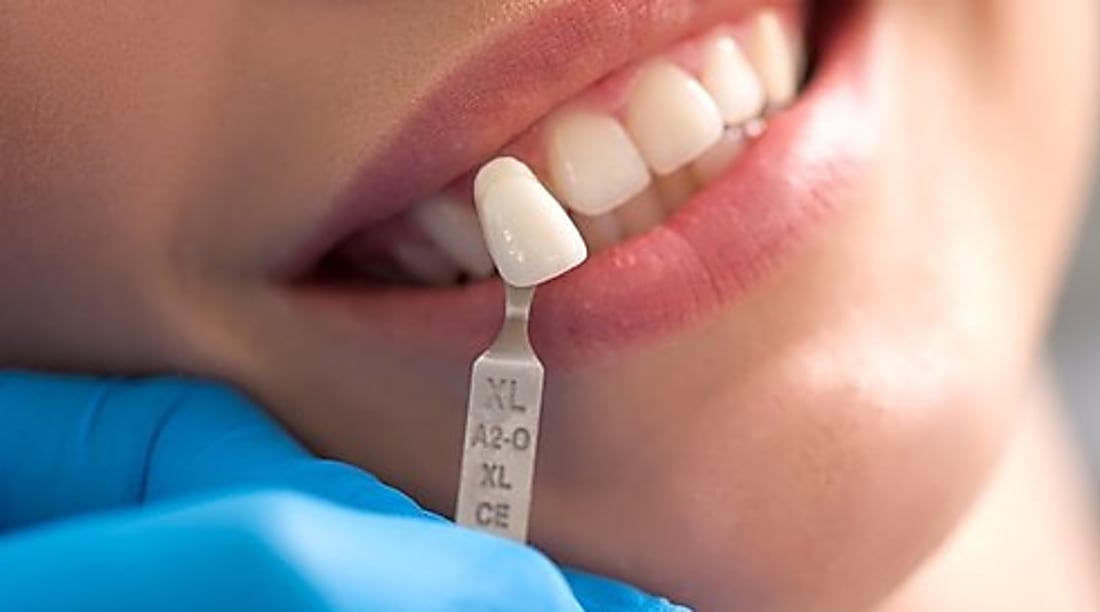Understanding Dental Implants: Procedure, Cost, and Aftercare Guide
Dental implants represent a significant advancement in modern dentistry, offering a permanent solution for missing teeth. Unlike removable dentures or temporary bridges, implants provide a sturdy foundation that mimics natural tooth roots. This comprehensive guide explores the implant procedure, associated costs, aftercare requirements, and what to expect when considering this increasingly popular dental restoration option.

Dental implants have revolutionized restorative dentistry by providing patients with a permanent solution that closely resembles natural teeth in both function and appearance. These titanium posts surgically placed into the jawbone serve as artificial tooth roots, creating a stable foundation for replacement teeth. Unlike traditional dentures or bridges, implants prevent bone loss, maintain facial structure, and allow patients to eat, speak, and smile with confidence. The growing popularity of dental implants stems from their durability, functionality, and natural aesthetics, making them an excellent long-term investment in oral health.
What Makes a Dental Implant Specialist the Right Choice?
Finding the right dental implant specialist can significantly impact your treatment outcome. Dental implant specialists, often periodontists or oral surgeons, have undergone additional training specifically focused on implant procedures beyond general dentistry education. These specialists possess comprehensive knowledge of bone structures, surgical techniques, and potential complications that might arise during the implantation process.
When searching for a specialist, look for board certification, extensive experience with implant procedures, and positive patient testimonials. The ideal specialist should thoroughly evaluate your oral health, discuss your medical history, and create a personalized treatment plan. They should also utilize advanced technology such as 3D imaging for precise implant placement. A consultation with multiple specialists can help you compare approaches and comfort levels before making this important healthcare decision.
Understanding Dental Implants Cost Breakdown
The cost of dental implants varies significantly based on several factors, making it essential to understand what contributes to the final price. A single tooth implant typically ranges from $3,000 to $6,000, including the implant post, abutment, and crown. Multiple implants or full-mouth restorations can cost considerably more, potentially reaching $30,000 or higher for complete upper and lower arch replacements.
Several factors influence the overall cost: - Geographic location (urban centers typically charge more) - Dentist’s experience and specialization - Materials used (titanium vs. zirconia implants) - Need for preliminary procedures like bone grafts or sinus lifts - Type of restoration (single crown vs. implant-supported dentures) - Diagnostic procedures and imaging requirements
Many dental insurance plans now offer partial coverage for implants, though coverage varies widely. Some practices offer payment plans or financing options to make treatment more accessible. While the upfront cost may seem high, the longevity of implants (potentially lasting decades with proper care) makes them cost-effective compared to alternatives requiring frequent replacement.
Prices, rates, or cost estimates mentioned in this article are based on the latest available information but may change over time. Independent research is advised before making financial decisions.
Essential Tooth Implant Aftercare Guidelines
Proper aftercare is crucial for the success and longevity of dental implants. The initial healing period after implant surgery requires special attention to ensure proper osseointegration—the process where the implant fuses with the jawbone. During the first 24-48 hours, patients should: - Apply ice packs to reduce swelling - Take prescribed antibiotics and pain medications as directed - Avoid rinsing vigorously, smoking, or drinking through straws - Stick to soft foods and avoid chewing near the implant site
Long-term maintenance involves daily care similar to natural teeth, including brushing twice daily with a soft-bristled toothbrush and flossing around the implant. Special tools like interdental brushes or water flossers may be recommended to clean hard-to-reach areas around implants. Regular dental checkups every six months are essential for professional cleaning and to monitor implant health.
Patients should be vigilant about potential complications such as persistent pain, swelling, or implant mobility, which could indicate infection or implant failure. Prompt attention to these symptoms can prevent more serious issues and extend implant lifespan.
How Implant in Dentistry Has Evolved Over Time
The concept of dental implants dates back thousands of years, with archaeological evidence showing primitive implants made from shells, jade, and other materials. Modern implantology began in 1952 when Swedish orthopedic surgeon Per-Ingvar Brånemark discovered osseointegration—the biological bonding between titanium and bone tissue—which revolutionized the field.
Over decades, implant designs have evolved from blade forms to the current screw-shaped root-form implants. Significant technological advancements include: - Computer-guided implant placement for precision - Digital scanning and 3D printing for custom components - Surface treatments that enhance osseointegration - Immediate-load implants that allow same-day restorations - Mini-implants for patients with limited bone volume
Today’s implant procedures boast success rates exceeding 95%, a dramatic improvement from earlier generations. The development of biocompatible materials and refined surgical protocols has reduced healing times and improved outcomes. Current research focuses on bioactive coatings, stem cell applications, and zirconia implants as metal-free alternatives, promising even better results in the future.
Breaking Down Single Tooth Implant Cost and Considerations
When replacing a single missing tooth, understanding the complete cost structure helps patients make informed decisions. A single tooth implant involves multiple components, each contributing to the overall expense:
| Component | Average Cost Range | What It Includes |
|---|---|---|
| Initial Consultation | $100-$300 | Examination, X-rays, treatment planning |
| Implant Placement | $1,500-$3,000 | Surgical procedure, titanium post |
| Abutment | $300-$500 | Connector piece between implant and crown |
| Crown | $1,000-$2,000 | Custom-made tooth replacement |
| Additional Procedures | $500-$3,000 | Bone grafting, sinus lifts, extractions if needed |
Prices, rates, or cost estimates mentioned in this article are based on the latest available information but may change over time. Independent research is advised before making financial decisions.
The total investment for a single tooth implant typically falls between $3,000 and $6,000, though this varies by location and individual needs. While this exceeds the cost of alternatives like bridges ($2,000-$4,000) or partial dentures ($1,000-$2,000), implants offer superior longevity and don’t require modification of adjacent healthy teeth.
When evaluating cost, consider long-term value—implants can last decades with proper care, while bridges and dentures typically require replacement every 5-10 years. Many dental practices offer free consultations to discuss financing options, including dental insurance, flexible spending accounts, healthcare credit cards, or monthly payment plans.
Dental implants represent a significant investment in oral health that provides natural-looking, functional teeth replacement. The procedure has evolved significantly over decades, offering patients reliable, long-lasting solutions for tooth loss. While costs may seem substantial initially, the durability, functionality, and aesthetic benefits often outweigh those of alternative treatments in the long run.
When considering dental implants, thorough research and consultation with qualified specialists are essential. Understanding the full scope of treatment—from initial evaluation through surgery and restoration to ongoing maintenance—helps set realistic expectations. With proper care and regular dental checkups, dental implants can provide a lifetime of comfortable chewing, clear speech, and confident smiles, making them a worthwhile consideration for anyone facing tooth loss.
This article is for informational purposes only and should not be considered medical advice. Please consult a qualified healthcare professional for personalized guidance and treatment.




